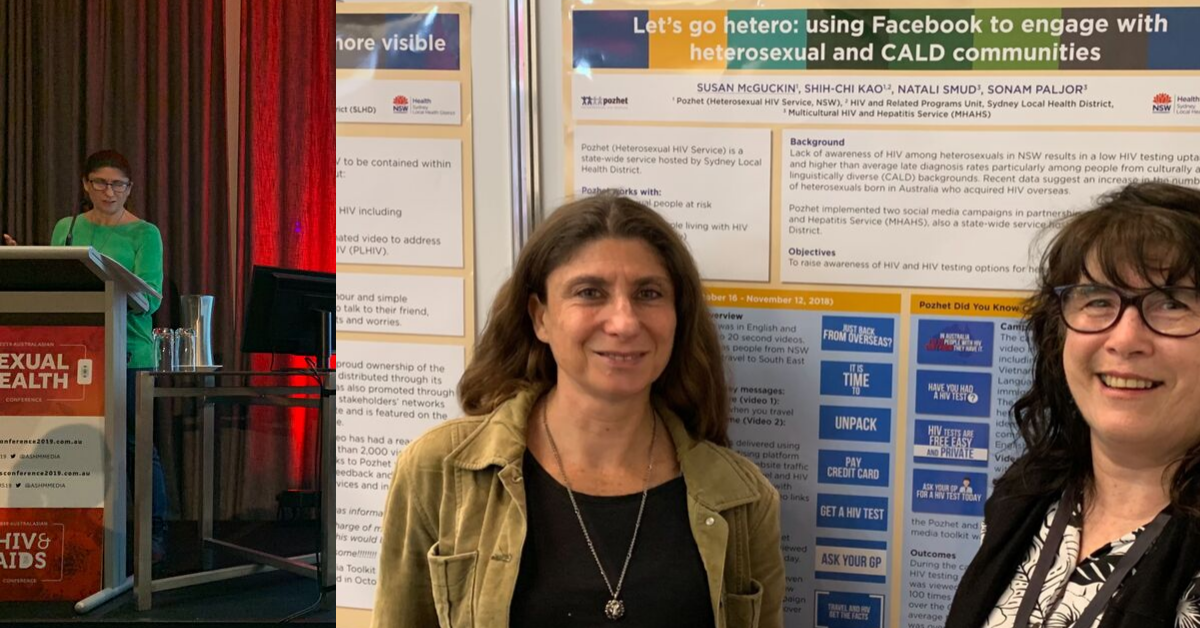MHAHS was well-represented at the Joint 2019 Australasian Sexual Health and HIV Conference, held in Perth, WA, from 16-19 September.
Donatella Cifali, one of our Senior Social Workers, presented a paper titled Stigma, equity and choice: Decision making in the context of infant feeding by HIV-positive mothers discussing issues affecting women living with HIV. The paper was written in collaboration with Pozhet NSW.
"It was good to see issues affecting women discussed and taken seriously even though women constitute only about 10% of people living with HIV in Australia. There are particular issues that are unique to women and are worth raising as it affects the social and emotional wellbeing of women. Our paper looked at breast feeding in the context of the newly released National Breast Feeding Strategy and of various HIV and breastfeeding guidelines globally," Ms Donatela said.
In the developing world, HIV-positive women are told to avoid breast-feeding altogether, to give their infants the best chance of remaining HIV-negative. However in the developing world, where they often lack clean water and an affordable, reliable supply of infant food supplement, the World Health Organization recommends that HIV-positive mothers exclusively breast-feed their infants for the first six months.
"We emphasized that it is not a matter of whether women breast feed or not but more about how they are being informed. It's about service providers working in a partnership, not in a directive top down approach, but in a collaborative partnership to make sure all the available information is understood in an accessible format, that women are supported to make their own decisions based on the information at hand," said Ms Donatella.
The MHAHS also presented a poster with Pozhet NSW titled Let's go hetero: using Facebook to engage with heterosexual and CALD communities. The poster looked at a series of social media campaigns Pozhet NSW implemented with MHAHS which demonstrates how social media campaigns with simple culturally-inclusive messaging, are a cost effective way to reach priority populations in diverse communities.
For more information about MHAHS, visit www.mhahs.org.au or call 95151234.

